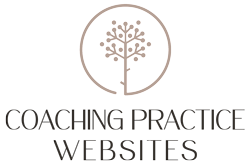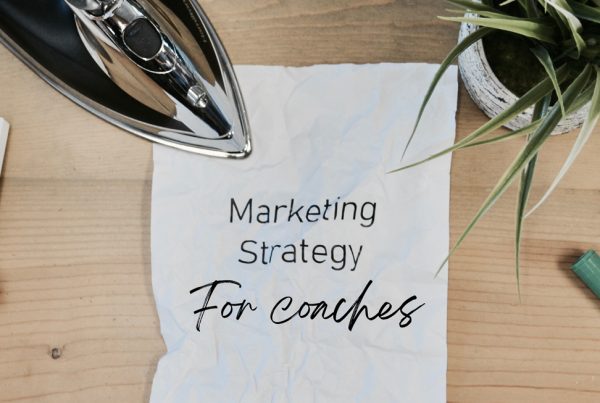Develop confidence
“No one is going to pay me to be their coach.”
“I’ve spent countless hours in coach training, but I don’t feel ready.”
“A client can say that I was helpful, but I only focus on the moments where I struggled.”
“I’ve had several discovery calls, but no one has signed up. I need to do something else.”
Does this sound like you? I’ve heard many coaches express doubts about their ability to coach well. Ironically, five years earlier, I attended a web design workshop on imposter syndrome for web designers and was already well aware of the telltale signs. Unfortunately, it seems that imposter syndrome can plague anyone stepping into a new career but especially those who are already prone to perfectionism and not feeling “enough”.
What is Imposter Syndrome?
The Oxford Languages dictionary defines imposter syndrome as the persistent inability to believe that one’s success is deserved or has been legitimately achieved as a result of one’s own efforts or skills.
What is Your Flavor of Imposter Syndrome?
Dr. Valerie Young, an expert on imposter syndrome, has defined five subtypes of imposter syndrome. Let’s explore how these might apply to coaches and find solutions for tackling each one.
The Perfectionist focuses on how things are done (or not done) well. They are consumed with negative feedback and obsess about the few things that didn’t go well. A perfectionist coach can be consumed with evaluating their own performance based on their client’s outcomes and on thinking about sessions where they struggled to be the best coach they could be.
Solution: Psychological research has shown that humans have a natural tendency to remember and give more weight to negative experiences than positive ones. This “negativity bias” affects us all so if this particular brand of imposter syndrome for coaches sounds like you, you are in good company. This does not mean that you can’t do anything about it, however. If your anxious brain cannot let go of a bad moment or criticism, allow a short period of time to think about it (set a timer for five minutes) and then let it go. What you resist, persists. Beating yourself up about obsessing will only make you feel worse. Then try to put the moment into perspective and avoid black-and-white thinking. Was it really that bad or are you being extra hard on yourself? Even if something legitimately went poorly, doesn’t mean that you’re a complete failure or everything is bad. Ask yourself what learning or growth might come from the experience. Then make sure you catalog all of your successes.
The Expert feels they should know everything about a subject or they aren’t good enough or have failed. While good coaches know that their clients have the answers, many coaches feel that they have failed when their clients don’t have the “aha” moment the coach hopes for.
Solution: Remember that as a coach you don’t need to have all the answers, you just need to lead your clients to their answer. Also, be honest with yourself about who are you serving. Do you enjoy working with the population you serve or in the coaching area you work in? Resistance and unhappiness can come when there is a bad fit. If you find that you don’t enjoy coaching your clients, examine the reasons behind it. By focusing on the clients you truly want to serve, you free up yourself and the clients you aren’t meant to work with. Next, be realistic about how much growth and learning will come from each individual session and what might be occurring behind the scenes. Even when a client has gained great self-awareness from a session they may need time to put it into practice.
The Soloist wants all the credit for a completed task without needing assistance from anyone or anything else. As coaches, we can sometimes feel that we need to have all the answers or are the best person to help our clients with any struggle.
Solution: As a coach, while we often work alone, we should not be afraid to bring in outside help for our clients when they are struggling with something that is beyond our expertise. In fact, not recognizing when a mental health, legal or medical professional is needed can be downright dangerous for our clients. Providing a strong referral can sometimes be the most helpful answer to address a particular problem. Additionally, it’s good to keep learning and growing as a coach – attending workshops and continuing education seminars by other experts will help us feel less alone. Finding a mentor or a coaching group can also be a great way to share resources and get help when you’re feeling like an island. Have a moment or challenge you need to check out? This is a perfect way to get support and perspective! New coaches often feel like they need to act like a consultant, not a coach for their clients to get value in a session. Remember that coming to an answer yourself is much more powerful for growth than just being told what to do.
The Natural Genius is someone who believes if they don’t nail it on the first try, they aren’t innately good enough to do the job. If you’ve felt like it’s taken “too” much time to get good at coaching, this could be your specific brand of imposter syndrome for coaches. Most of us aren’t good at anything the first time or even the tenth time we attempt something.
Solution: Try to be realistic with yourself about how long it will take for you to feel confident about your coaching. Just like everything in life, confidence grows with practice. It may feel uncomfortable to ask someone if you can coach them (sometimes another coach is an easy bet) but it will pay off. Allow yourself to make mistakes and learn from them. Talk to a seasoned coach about how long it took for them to gain confidence and how they got through those early days.
The Superhuman feels that they must excel at all of their roles and job responsibilities to be considered good at their job and as a person. On top of that, doing so should come effortlessly. Coaches often have an unrealistic expectation that they have to have mastered a particular issue themselves to help a client with that same issue.
Solution: Remember your humanity. No one has it all figured out. As a mentor recently told me – “you just need to be one step ahead of the client in your own knowledge/development.” Taking the pressure off yourself to be it all and know it all will make you a much more present and open coach, trusting the process to unfold as it should. I often urge my clients to adopt a “good enough” attitude to replace a “must be perfect” one. How might things change for you if you allowed such an attitude?
Still struggling?
As a mentor coach, I provide clear and kind feedback for coaches who need support to feel successful in their coaching career. I'd love to work with you.




